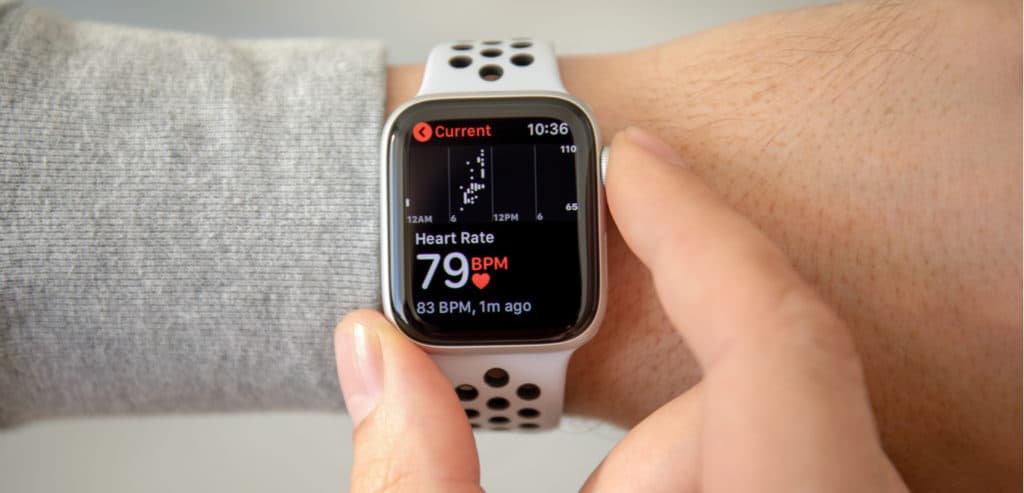Researchers from the Stanford University School of Medicine now have preliminary results of the Apple heart study, a virtual study with over 400,000 enrolled participants. The researchers reported that wearable technology can identify heart rate irregularities that subsequent testing confirmed to be atrial fibrillation, which causes stroke and hospitalization.
The study was launched with sponsorship by Apple Inc. in November 2017 to determine whether a mobile app that uses data from a heart-rate pulse sensor on the Apple Watch can identify atrial fibrillation. The condition often remains hidden because many people don’t experience symptoms.
Key findings from the study include:
- Overall, only 0.5% of participants received irregular pulse notifications.
- Comparisons between irregular pulse-detection on an Apple Watch and simultaneous electrocardiography patch recordings showed the pulse detection algorithm (indicating a positive tachogram reading) has a 71% positive predictive value.
- 84% of the time, participants who received irregular pulse notifications were found to be in atrial fibrillation at the time of the notification.
- One-third of the participants who received irregular pulse notifications and followed up by using an ECG patch over a week later were found to have atrial fibrillation.
- 57% of those who received irregular pulse notifications sought medical attention.
For the study, each participant was required to have an Apple Watch (series 1, 2 or 3) and an iPhone. The most recent Apple Watch, which features a built-in ECG, wasn’t part of the study. The Apple Heart Study app intermittently checked the heart-rate pulse sensor for measurements of an irregular pulse. If an irregular pulse was detected, the participant received a notification and was asked to schedule a telemedicine consultation with a doctor involved in the study through American Well. Participants were then sent ambulatory ECG patches through BioTelemetry, which recorded the electrical rhythm of their hearts for up to a week.
“The study’s findings have the potential to help patients and clinicians understand how devices like the Apple Watch can play a role in detecting conditions such as atrial fibrillation, a deadly and often undiagnosed disease,” says Mintu Turakhia, associate professor of cardiovascular medicine. “The virtual design of this study also provides a strong foundation upon which future research can be conducted to explore the health implications of wearable technology.”
Researchers from the Lankenau Heart Institute, Jefferson Medical College, the University of Colorado School of Medicine, Cooper Medical School of Rowan University, StopAfib.org, the American Foundation for Women’s Health and Duke University also contributed to the study.
The Apple Heart Study was funded by Apple Inc.
Favorite